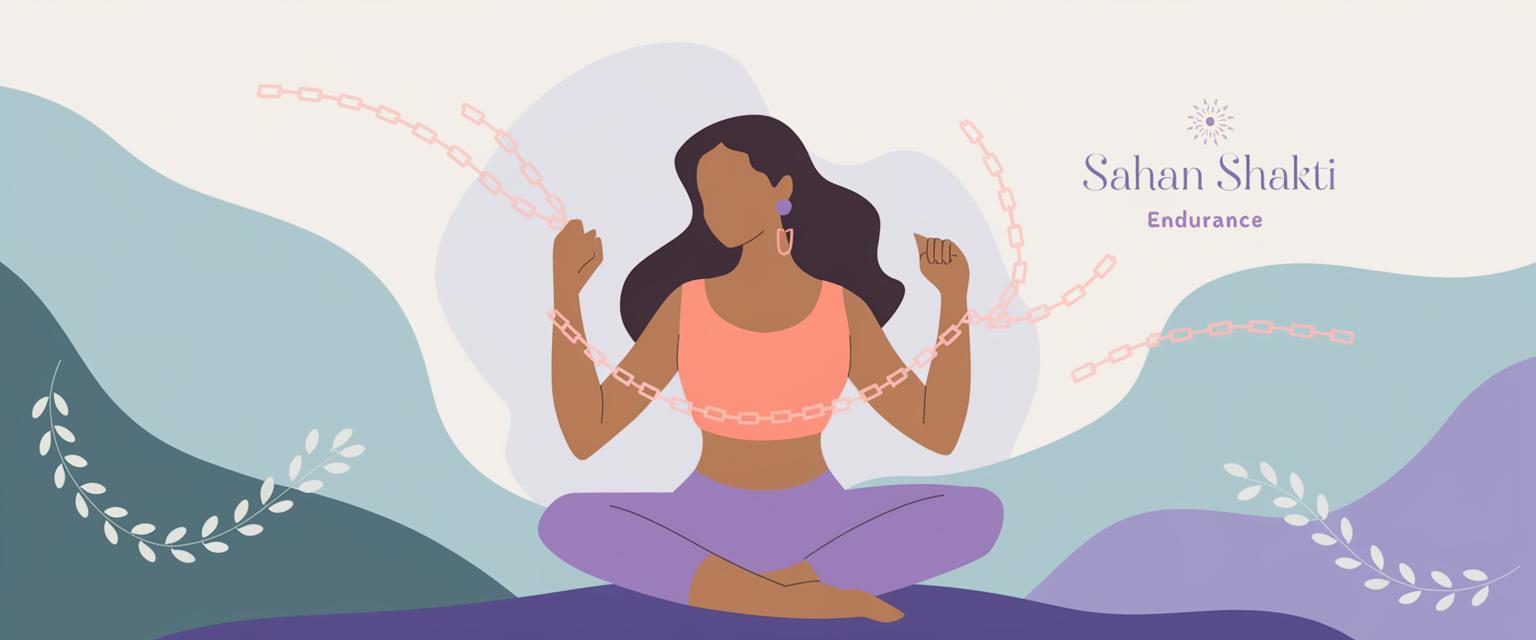Table of Contents
Romanticized Endurance in India: Healing Guide
Have you ever felt pressured to just “bear it,” to silently endure discomfort or pain? It’s a familiar feeling for many women—especially in cultures where strength is measured by suffering.
This guide explores how romanticized endurance in India, particularly the concept of sahan shakti, can deeply impact women’s mental health. We’ll explore the difference between resilience vs endurance, and offer actionable steps to reclaim your well-being.
Growing up, I often watched the women in my family push through pain and emotional fatigue without complaint. Their silence was called strength—but I could see the toll it took.
Understanding the Sahan Shakti Myth
What is Sahan Shakti?
In Indian culture, sahan shakti means “power of endurance.” It’s widely considered a virtue for women—the ability to bear pain, suppress needs, and serve others without resistance. This is often seen as a hallmark of the ideal wife, mother, or daughter.
But the glorification of this idea isn’t just personal—it’s deeply cultural and systemic.
The Cultural Roots of Endurance
This endurance ideal emerges from patriarchal traditions that benefit when women suppress their needs. Whether in rural or urban settings, women across classes feel this pressure differently—but it always asks the same thing: “Don’t speak. Just cope.”
I remember watching a soap opera where the heroine was praised for serving her in-laws while seriously ill. No one asked why she felt obligated to endure it.
Why Glorifying Endurance Is Harmful
When we glorify emotional endurance, we create toxic expectations:
Suppression of feelings becomes the norm
Physical pain is ignored until it’s severe
Mental health issues are dismissed as weakness
Seeking help feels shameful
These messages are ingrained in media, family dynamics, and casual conversations. The result? Generational trauma masked as strength.
Self-Care Spark: Your pain matters. Feeling it doesn’t make you weak.
Resilience vs Endurance: Finding a Healthier Path
What Is True Resilience?
Resilience means acknowledging struggles, processing emotions, and seeking support to adapt and heal. It looks like:
Talking openly about your pain
Asking for help without guilt
Practicing self-compassion
Learning from hardship—not just surviving it
True resilience builds strength through connection, not silence.
What Is Unhealthy Endurance?
Unhealthy endurance means pushing through pain while disconnecting from yourself. Warning signs include:
Minimizing or ignoring physical symptoms
Constantly sacrificing your own needs
Feeling guilty for taking breaks or expressing emotions
Believing that asking for help = failure
Your body keeps the score. Even if your mind suppresses the pain, it shows up in chronic fatigue, mood swings, and more.
Are You Romanticizing Endurance?
Ask yourself:
Do I say “I’m fine” when I’m not?
Do I feel selfish for prioritizing myself?
Have I been praised for “never complaining”?
Do I avoid asking for help because I “should” handle it?
If any of these sound familiar, you may be internalizing the sahan shakti myth.
How to Build Healthy Resilience
Here’s how to move toward empowered healing:
Set boundaries: Say no without guilt.
Talk about your feelings: Even journaling is a great start.
Seek support: Whether friends or therapists—connection heals.
Practice mindfulness: Even five minutes of breathing helps.
Do what restores you: Walks, art, reading—anything that replenishes.
Mindful Moment: Resilience isn’t being unbreakable—it’s trusting you can rebuild.
Taking the First Steps Toward Healing and Support
1. Acknowledge Your Pain
Saying “This hurts” is a radical act in a culture that praises quiet suffering. If you’re dealing with:
Unexplained body aches
Mood swings or emotional burnout
Anxiety or persistent sadness
You’re not weak—you’re human. These are real signals, not flaws.
2. Break the Silence
Talking about your experiences lifts the weight of shame. Start with:
Journaling honestly
Speaking to one trusted friend
Joining support groups
Creative expression—mandalas, dance, poetry
Each time you speak your truth, you create space for others to do the same.
3. Seek Professional Help
Therapy works—even more when it’s culturally aware. A 2022 Indian Journal of Psychiatry study shows women in therapy report improved mental health and life satisfaction.
Find professionals who understand Indian family dynamics and won’t reinforce harmful norms. Check out:
Indian feminist collectives with mental health resources
Online therapy for privacy and ease
4. Prioritize Your Well-Being
Start with small healing rituals:
Morning journaling
10-minute quiet nature walks
Soothing music or tea breaks
Saying one kind thing to yourself each day
Self-Care Spark: Healing is not indulgence. It’s your birthright.
Quick Wellness Q&A: Romanticized Endurance in India
Q: Why is endurance glorified in Indian culture?
A: Through media, family stories, and cultural ideals, enduring pain silently is treated as strength—especially for women. This praise often comes at the cost of mental and emotional health.
Q: What’s the difference between resilience and endurance?
A: Resilience heals. It processes and adapts. Endurance harms—it suppresses and ignores. The former strengthens, the latter burdens.
Q: How does endurance affect mental health in Indian women?
A: Long-term suppression of emotions can lead to anxiety, depression, chronic illness, and burnout. It can also impact self-worth and relationships.
Q: How do I know if I’m stuck in the endurance mindset?
A: If you constantly put others first, feel guilty for resting, or suppress your emotions, you may be caught in the cycle.
Q: What if my family dismisses therapy or emotional needs?
A: Educate gently, but don’t wait for approval. Frame it as self-growth or “stress relief” if needed. Your health is valid, even if others don’t understand it yet.
Final Word
Breaking the cycle of romanticized endurance in India is a quiet revolution. It’s about listening to your inner voice, honoring your pain, and reclaiming your right to joy, rest, and healing.
Start today. Say one kind sentence to yourself. Say no when you need to. Breathe deeply. You’re not alone—and you’re allowed to thrive.
Subscribe to the Hey Mandala Newsletter for weekly wellness tips, gentle affirmations, and tools to support your healing journey.

